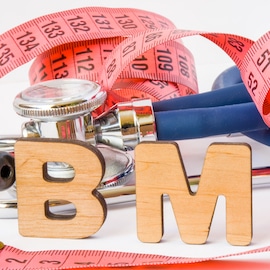Weight Loss and Its Impact on Heart Health
When you are overweight, you already know that your risk of heart disease is higher than for someone who is not heavy.

When you are overweight, you already know that your risk of heart disease is higher than for someone who is not heavy.
If you’re not sure if you are overweight, you should check your Body Max Index (BMI). You can do this by calculating it yourself or by consulting a BMI calculator on the internet. Basically, calculating your BMI means taking the number of pounds you weigh and dividing that number by 703. The answer is your Body Mass Index.
If your BMI is between 18 and 25, your weight is normal. But if it is 25-30 you are overweight and if it is over 30 you are obese.
If you are obese or overweight, you must work to get your body mass index back into the normal range. You can do this by getting regular exercise and eating foods that are low in fat and calories.
The good news is that you don’t need to lose a lot of weight to lower your risk of strokes and heart disease.
Even if you lose just 5-10 percent, your risk for heart attacks, stroke or peripheral vascular disease goes down significantly.
New England Journal of Medicine Study
There was a recent study in the New England Journal of Medicine that concluded that if you reduce the calories you take in every day, it doesn’t matter what type of diet you choose to follow. So, if you prefer a low carb diet, a high protein diet, or a low-fat diet it doesn’t really matter. Any diet where the calorie count is lower will cause you to lose weight.
For a person of average height, it takes between 2000 and 2500 calories a day to sustain their current weight. So, if you reduce the number of calories you eat per day to 500 calories less than this baseline, you can lose almost a pound per day. It doesn’t matter how you choose to lower those calories.
What About Exercise?
The bottom line is that the specific balance of fat, protein, and carbs that you take in doesn’t affect the amount of weight you will lose. In addition, when you exercise you burn calories and replenish the number of calories you are allowed that day while still losing weight. So daily exercise is a great way to keep you from getting hungry in addition to its many other benefits.
Like your daily diet, you have a lot of choice about which exercises to undertake. Any activities that you find enjoyable that raises your heart and respiratory rates are good. Some choices are swimming, cycling, brisk walking and running. This type of exercise is called aerobic exercise and you should try to do it about 30 minutes per day 3-4 times a week.
The other days you can do anaerobic exercise. This kind of exercise includes weight lifting and using specialized weight machines. The benefit to anaerobic exercise is that it will increase muscle mass and that will make it easier for you to lose weight because it helps raise your basal metabolic rate. That means you will burn more fat even after you stop exercising and are resting.
What happens to your heart when you lose weight?
If you are able to lose 10 percent of your body weight (20 pounds if you currently weigh 200 pounds), it will have the following effects on your heart:
1. Blood vessels will be more flexible. Your blood vessels will be more flexible and less narrow when you exercise. It also reduces stress. This means your heart will not have to work as hard and it will function more efficiently. Your arteries will collect less fat, the substance that forms plaque and causes them to narrow, which leads to heart attacks, peripheral vascular disease, and strokes.
2. Lower blood pressure. Your weight has a direct effect on your blood pressure. Your risk of developing high blood pressure goes down as you lose weight. So, exercise should be included in your daily routine because it helps lower blood pressure. Also, if you are currently taking medications for high blood pressure, you might be able to reduce these medications if you lose weight.
3. Lower blood lipids. The level of lipids in your blood will be lower if you lose weight. By losing weight, you decrease your level of triglycerides, raise your levels of good cholesterol (HDL), and lower your bad cholesterol (LDL).
4. Fewer blood clots. By losing weight, you will lower your chances of developing blood clots. That means there will be less possibility that you will have a blood clot in your leg that travels to your heart, brain, or lungs and causes a blockage.
Reduce Belly Fat
The amount of belly fat that you accumulate around your middle dramatically raises your risk of heart disease and this is even true for people whose weight is normal. So, it’s important to reduce belly fat to lower your risk of developing heart disease.
Everyone talks about losing weight, especially if they want to look better and be more attractive, but there are also very good health reasons to lose and maintain a healthy weight.




